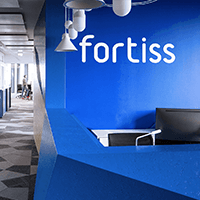The aim of the joint project "KISusCheck - Sustainable Shopping Assistant", funded by the Federal Ministry of Food and Agriculture (BMEL), was to combine Artificial Intelligence (AI) and sound nutritional knowledge - to make it easier for consumers to evaluate and select healthy and climate-friendly foods with the help of a digital tool. The currently available prototype of the web-based app not only uses a specially developed sustainability score, but also offers an integrated chatbot that provides further information on supply chains and nutritional issues. For quick and easy use, the app also has a scan function that can be used to scan the barcode on packaging while shopping.
On the one hand, the project results to date in the form of the digital tool can ensure greater transparency when shopping for food. On the other hand, the results can increase social acceptance of sustainable and healthy eating in the long term and help to develop a digital model for a sustainable diet.
Web app with chatbot: great interest among consumers
In order to define the expectations and willingness to use of the target group, KErn carried out two consumer samples at the start of the project: Almost 70% of more than 1000 participants from all over Bavaria expressed great interest in a shopping assistant in the form of a mobile application with an integrated chatbot. In the second online survey, more than 93% of participants also stated that they associate a sustainable diet with a production method that protects the environment, resources, climate and soil. Based on these opinions, the necessary sustainability criteria were defined in order to tailor the chatbot's specialist information to the needs of consumers.
Individual sustainability score for food
In order to comprehensively assess the sustainability of food, a sustainability score was developed specifically for the "KISusCheck" project, which is integrated as an algorithm in a calculation tool. The evaluation system enables comparison within a product category and is based on the four dimensions of health, social, environmental and animal welfare in the 2020 report of the Scientific Advisory Board on Agricultural Policy, Food and Consumer Health Protection (WBAE). The sustainability criteria for these four dimensions were developed and defined by the project team in collaboration with the Research Institute of Organic Agriculture (FiBL).
More transparency in the food retail sector with technical innovations
User tests in the project showed that consumers attach great importance to information on the supply chain and the naming of specific sources in order to classify the score results as trustworthy. To take this into account, the "KISusCheck - Sustainable Shopping Assistant" app works with the collaborative food safety platform "IBM Food Trust" developed by IBM. This is based on blockchain technology, which technically enables secure collaboration between organizations in networks without trust.
The AI application, which was developed by fortiss, accesses the blockchain data from IBM Food Trust and other data sources. These were selected and created as part of the research project. The product information is linked in a decentralized cloud in a verifiable and trustworthy manner and made accessible quickly and flexibly via a virtual voice assistant (chatbot). To this end, relevant sustainability criteria are defined in the project and a calculation model for the index is created. Finally, a virtual voice assistant (chatbot) was integrated into the application. This guides the consumer through simple dialogs and provides information quickly and flexibly. The aim is to make the user-friendly shopping assistant available as a mobile app.


